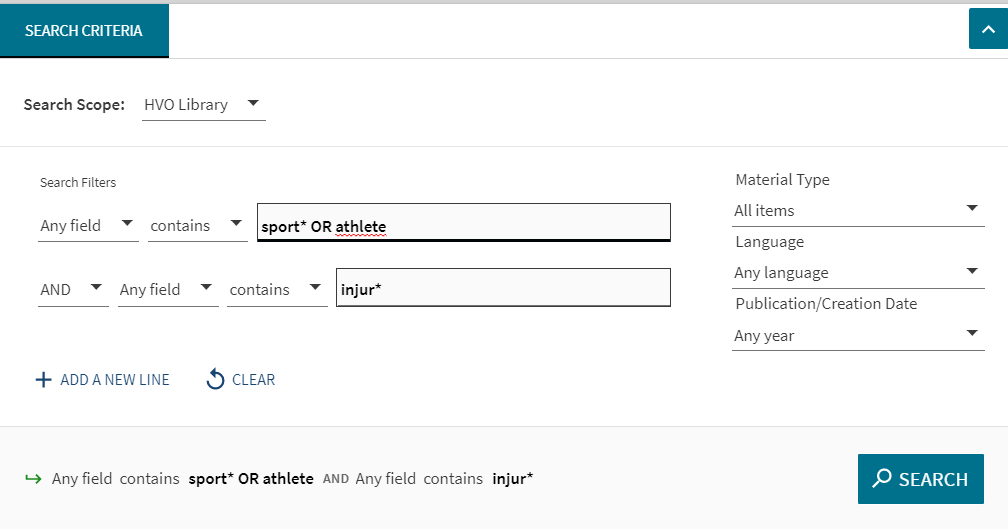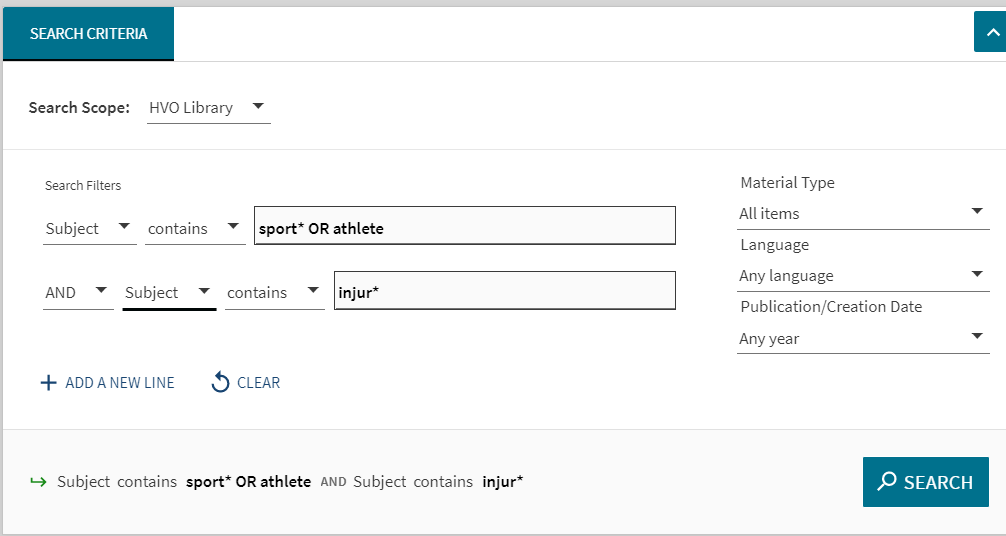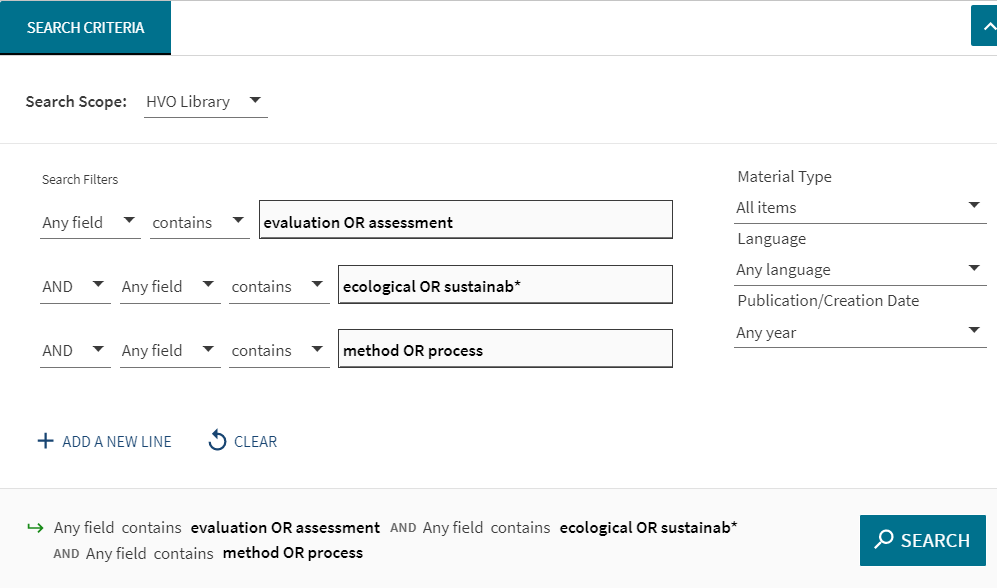Search tips
1. Use your research question as a starting point
- Put the research question into keywords. Think about synonyms and word combinations. Tool: Literature Search Sheet.
- Tip: Use Ordnett to find synonyms in Norwegian and other languages. Use Google Scholar for English terms.
2. What type of literature do you need?
The following questions will help you choose which search tools and databases to use from the Database page, and how you refine your search:
- Do you need books or journal articles?
- Do the articles you choose have to be academic/scholarly/peer-reviewed?
- Do you need facts, parliamentary documents, statistics, laws?
3. Search Techniques
Phrase Search
- Phrase = 2 or more words together without other words in between
- Search for a phrase by putting quotation marks around the phrase
- e.g. «upper secondary education», e.g. «global warming»
Too many results: Refine your search
- Refine your search by typing multiple keywords into the search box. Then you will only get results that include all words. In Oria putting a space between each word works as AND so that you only get results that include all keywords. In other databases than Oria, use AND instead of a space.
e.g.: «upper secondary education» mathematics motivation (Oria)
e.g.: «upper secondary education» AND mathematics AND motivation (Oria and other databases)
(gives results for literature where «upper secondary education», mathematics and motivation are all included) - Refine results to a specific literature type
e.g. books, journal articles, articles from peer-reviewed journals - Refine results by time (date/year)
- Narrow your search with specific fields such as author, title, subject. This can be done from the «Advanced Search» screen.
Not enough results: Expand your search
- Truncate words with * : Search for the root of a word to get different variants of the word. The truncation sign is usually a star/asterisk *
e.g. bank* gives results for bank, bankers, banking, bankruptcy, etc. - Search for synonyms with OR between keywords. This gives results where at least one of the keywords is included.
Example: malaria OR zika - Search for broader terms.
Example: «environmental pollution» is a broader term than «soil pollution» - Check for different spelling (UK vs US?), name variant, language, etc. Maybe a word was misspelled?
Advanced Search Techniques
Group key works together to form search phrases by using brackets.
Example 1:

This will give results that contain either sport* and injur*, or athlete and injur*.
Example 2:

This will give results that contain evaluation or assessment with ecological or sustainab* and method or process:
Evaluation AND ecological AND method / Evaluation AND ecological AND process / Evaluation AND sustainab* AND method / Evaluation AND sustainab* AND process / Assessment AND ecological AND method / Assessment AND ecological AND process / Assessment AND sustainab* AND method / Assessment AND sustainab* AND process
Advanced Search Screen
You can also search with multiple search strings in «Advanced search». Most databases have this option.
Example of Advanced Search in Oria:
Example 1:

Note that the default is to search in Any field. This means it will search for these terms in title, subject and even abstract if available.
Example 2:

The search engine will search for these terms in the subject field only.
Exampe 3:

3 lines of search strings are used. This will give results that contain evaluation or assessment with ecological or sustainab* and method or process.
Want more information about searching techniques? Go to the Search and Write page on searching techniques
Planning a systematic search? Check out the Search and Write page on systematic searching
